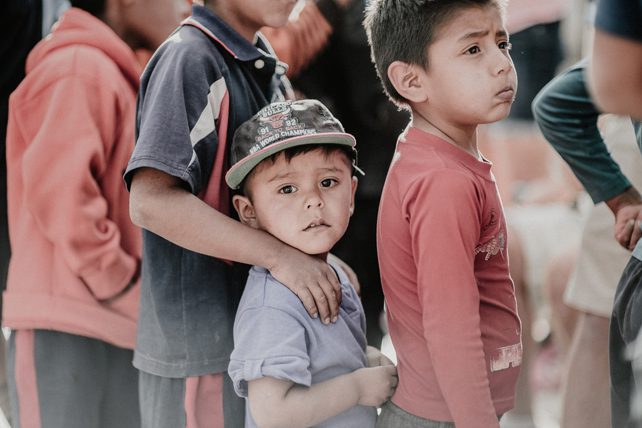I knew I wanted to adopt before I’d ever met my wife.
That’s not the normal story, of course—but I felt my calling to care for orphaned children was clear. That’s how I ended up in Tanzania, working at an orphanage as a missionary in my early 20s. And that’s how my wife and I ultimately adopted our son while living in Tanzania. My mindset was focused: I was to go and be the hands and feet of Christ to these children.
Over time, however, my perspective shifted. I knew that most of the vulnerable children in Tanzania wouldn’t be adopted. And I started to see that even the best institutional care for vulnerable children, like the orphanage I worked in, still wasn’t all that the children needed. I repeatedly encountered and wrestled with God’s provision for orphans in Scripture: He places the lonely in families.
While at the orphanage, my eyes began to open. The reality was that most of these children weren’t “orphans” as I understood the term. Almost all had living families. But their families were struggling—lacking income, access to food, medical care, and education—and they needed support.
I slowly came to understand more completely why many of these children were in orphanages in the first place: hardship, not the lack of family.
In fact, poverty is the leading cause of children being placed in orphanages worldwide. Families often surrender their children because they feel it’s the best way for the child to have their basic needs met. Four out of five children in orphanages globally have a living parent, and almost all have other living family members.
I still wanted to help vulnerable children—my heart for these children hadn’t changed—but I began to wonder if there was a better way. I wasn’t the one they needed love from; it was the love of a family they needed.
A friend who worked in a nearby orphanage told me about a new foster care program that had been started in the community, where children who couldn’t return to their biological families were temporarily placed in the care of another family in the community. Almost as a challenge, he’d asked me—a long-time missionary to orphanages—“What do you think?”
My experience with vulnerable children had actually led me to give an answer that surprised him—I said it was a good idea.
God had been revealing his heart for vulnerable children to me through his word. My heart had been changing. It made sense that a child would do better in a family setting over even a “good” orphanage, that’s part of the reason I was always drawn to adoption. But not only is this what God’s word says, it’s what the research shows.
Shortly after that conversation, my family went on hiatus in the United States for a year and a half. During that time, God continued to show me the importance of family for every child. My mindset became resolved during this time, and I returned to Africa with my young family.
This time, I had a new focus: Go and strengthen families.

